We are here to help: 1-888-532-7503
We are here to help: 1-888-532-7503
Empower Emerging Leaders With a Mentorship Program Designed for Non-Profits.
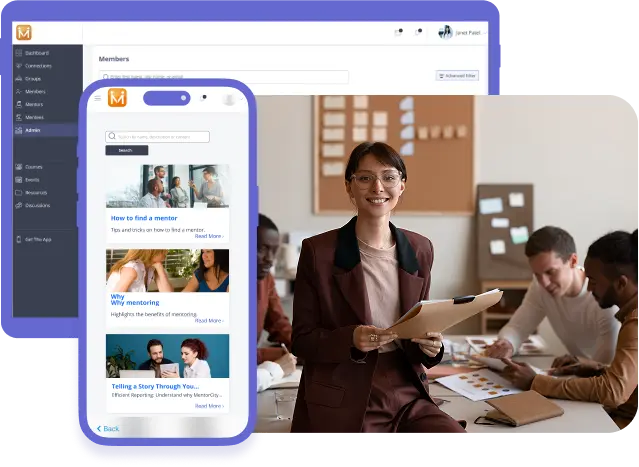








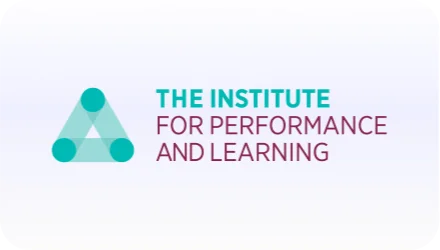






Mentorship is a powerful tool for shaping the next generation of leaders in non-profit organizations. A well-structured program builds confidence and helps individuals develop essential leadership skills and gain hands-on experience in community engagement.
Promoting mentorship for leadership growth enables non-profits to develop dedicated, mission-driven leaders who contribute to sustainable success and effect positive change.
Non-profit organizations rely on passionate individuals dedicated to making a difference. However, many employees, volunteers, and community members lack formal leadership training.
Non-profit leadership mentoring provides the guidance and support necessary to equip individuals with the skills and confidence needed to lead effectively.
A strong mentorship program helps bridge the gap between passion and leadership by offering hands-on learning opportunities, real-world problem-solving, and personalized guidance from experienced mentors.
It fosters a growth, accountability, and collaboration culture, ensuring that emerging leaders are well-prepared to take on key organizational roles.
By investing in mentorship, non-profits can build a sustainable leadership pipeline, empowering individuals to drive long-term impact and advance the organization’s mission.
Non-profit mentorship programs offer invaluable benefits, not only to mentees but also to the organization’s overall growth and sustainability.
One key advantage is enhancing leadership skills—mentorship helps individuals develop essential qualities such as effective communication, strategic decision-making, and conflict resolution, all crucial for strong leadership.
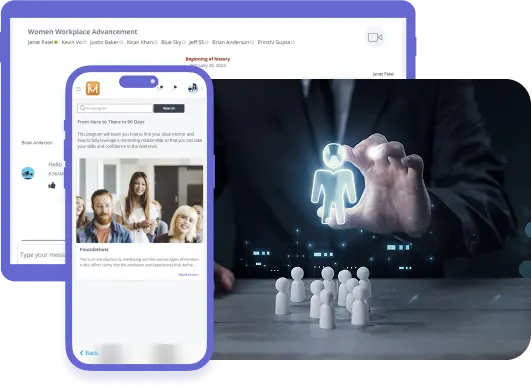
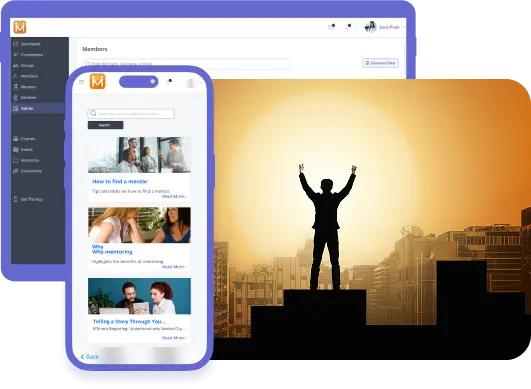
Mentorship increases confidence, providing mentees with the encouragement and reassurance they need to take on greater responsibilities within the organization. Having a supportive mentor helps individuals navigate challenges, refine their leadership approach, and trust in their own abilities.
Beyond personal growth, mentorship provides real-world leadership experience, allowing mentees to apply their knowledge in practical settings. This hands-on experience is invaluable in preparing future leaders for the complexities of managing a non-profit, from overseeing teams to making impactful decisions that align with the organization’s mission.
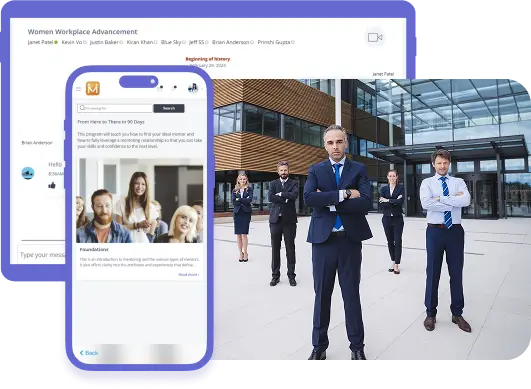
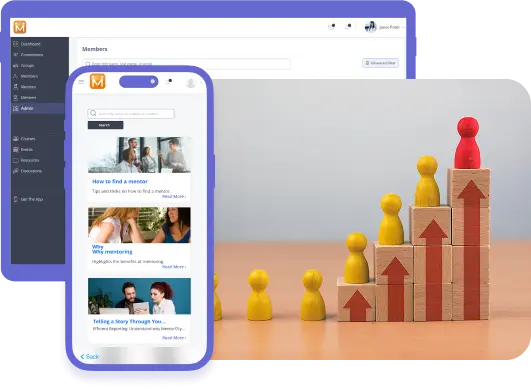
A well-structured mentorship program strengthens organizational growth by fostering a steady pipeline of skilled leaders. With trained and empowered individuals ready to step into leadership roles, non-profits can ensure long-term sustainability and continued success.
Finally, mentorship attracts greater support by demonstrating a commitment to leadership development. Organizations that invest in mentoring programs signal to donors, volunteers, and community members that they are focused on long-term impact. This enhances the organization’s credibility and increases engagement from stakeholders who want to support a thriving and well-led initiative.
Focusing on mentorship, non-profits can create a lasting impact, nurturing capable leaders who drive meaningful change in their communities.
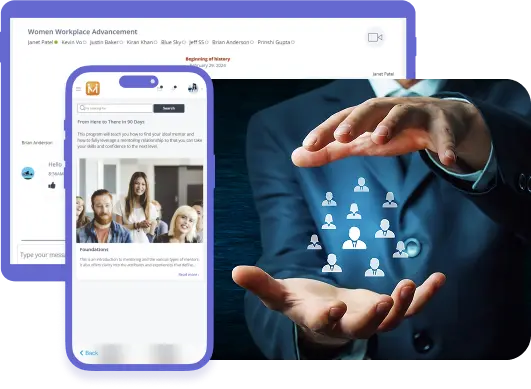
Mentorship is essential for shaping the future leaders of non-profit organizations. It offers tailored guidance that supports personal and professional growth.
Whether working with volunteers, job seekers, or team members, these programs provide an environment where individuals can build critical skills and advance their careers.
Connecting emerging leaders with experienced mentors, these programs provide an opportunity to gain practical insights from real-world experiences and enhance understanding of leadership complexities.
Through regular feedback, hands-on learning, and continuous support, mentees refine their decision-making abilities, improve problem-solving skills, and develop the confidence to take on increasing responsibilities.
Beyond skill-building, mentorship helps mentees connect more deeply with the organization’s mission, fostering a stronger sense of purpose. As they progress, they become more active, engaged, and prepared to lead teams, manage projects, and contribute meaningfully to the organization’s success.
Mentorship promotes a culture of collaboration and ongoing learning. By encouraging the exchange of knowledge and supporting leadership development, non-profits can lay the groundwork for long-term success, ensuring that emerging leaders are prepared to carry forward the organization’s mission.
Well-crafted mentorship programs help non-profits create a lasting legacy of passionate, capable leaders who will drive impactful change in their communities.

A structured mentorship program creates a roadmap for mentees, helping them achieve leadership milestones.
Key elements of an effective program include:

Many non-profit organizations have implemented mentorship programs to cultivate leadership talent.
The following are a few examples:
These programs demonstrate how mentorship can create a ripple effect, empowering individuals to take on leadership roles while advancing the organization’s mission.

MentorCity is a powerful tool that helps non-profits implement effective mentorship programs tailored to leadership development.
Through MentorCity, non-profits can create structured mentorship initiatives that foster leadership skills, cultivate a strong sense of community, and prepare mentees for future organizational roles.
MentorCity enhances the mentoring experience by offering personalized matching, clear objectives, and continuous support. This approach ensures that both mentors and mentees have the necessary resources to thrive.
The platform helps non-profits cultivate a culture of continuous learning, empowering emerging leaders with the knowledge, skills, and confidence required to effect positive change.
Customizable Mentorship Programs: Non-profits can design mentorship structures that align with their leadership goals.
Easy Mentor-Mentee Matching: The platform connects mentees with experienced mentors based on interests, skills, and goals.
Progress Tracking and Reporting: Organizations can monitor mentees' progress and evaluate the impact of mentorship programs.
Interactive Learning Tools: MentorCity offers various resources, including discussion forums, webinars, and leadership development activities.
Flexible Communication Channels: Mentees and mentors can interact through messaging, video calls, and scheduled check-ins for consistent support.
By integrating MentorCity’s features, non-profits can create meaningful and lasting mentorship experiences that drive leadership success.
To create a successful mentorship program for a non-profit, it’s essential to approach it thoughtfully and strategically.
First, set clear objectives for the program. This means figuring out which leadership skills you want your mentees to develop and creating specific goals that align with their personal growth and your organization's broader mission.
These objectives will provide the direction and structure for the program as a whole.
The next step is recruiting mentors and mentees.
It's important to bring in experienced professionals who are eager to share their knowledge and emerging leaders who can benefit from mentorship.
A diverse group of participants will bring different perspectives, enriching the program. By making sure your recruitment process is inclusive, you can meet a wide range of learning and leadership development needs.
Once you have your mentors and mentees, the next phase is effectively matching them. A thoughtful matching process ensures that mentors and mentees are paired according to their goals, interests, and areas of expertise.
This personalized approach creates a strong foundation for a meaningful and productive relationship.
Training and resources are crucial in preparing mentors and mentees for success.
Offering orientation sessions or providing materials on best practices, setting expectations, and communication strategies helps everyone maximize their experience.
When mentors have the tools they need to guide, and mentees are equipped to engage; the mentorship relationship becomes much more impactful.
Regular monitoring and evaluation are necessary to keep the program on track. Check-ins with both mentors and mentees help assess progress and address any issues that may arise. This ongoing support is vital for ensuring the mentorship experience is valuable and aligned with the goals.
Finally, it's essential to gather feedback and make adjustments as needed.
Listening to participants about their experiences can reveal areas that need improvement, whether in the matching process, the resources provided, or the overall structure.
By continually refining the program, you ensure that it remains effective and adapts to the evolving needs of mentors and mentees, fostering strong leadership development.
Non-profit mentorship programs are essential for developing future leaders in the non-profit sector.
Nurturing leadership skills through mentorship enables organizations to empower individuals to assume active roles, boost their confidence, and make meaningful community contributions.
Platforms like MentorCity provide the tools to facilitate structured and impactful mentorship programs, ensuring long-term success for non-profits.
If you’re ready to build a mentorship program that cultivates strong leaders, contact MentorCity today.
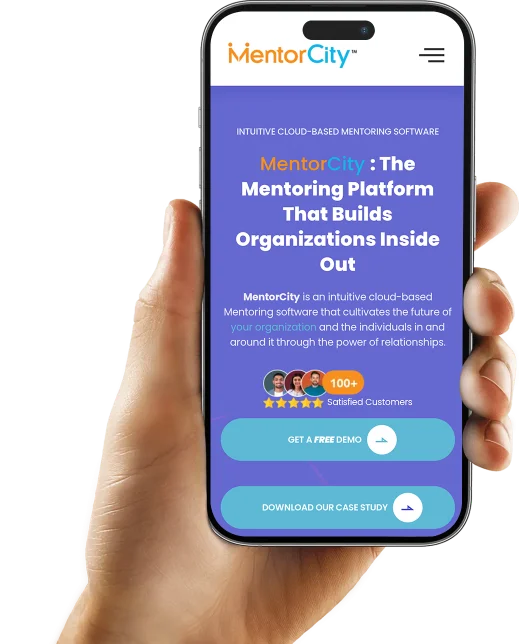
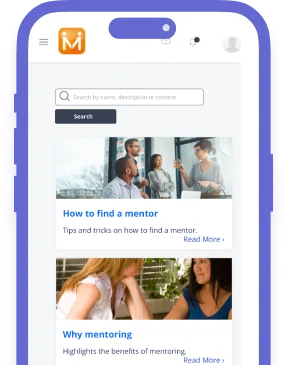
100+![]() Satisfied Customers
Satisfied Customers
4.7 out of 5 in customer reviews
from Capterra, GetApp




Book a Demo Today.

We believe that Everyone experiences times in their life and career when they can benefit from the guidance and support of a mentoring relationship, be it peer-to-peer or new to established. They help us through. They help us grow. And they help us to contribute and feel connected to something greater. That is at the heart of MentorCity.